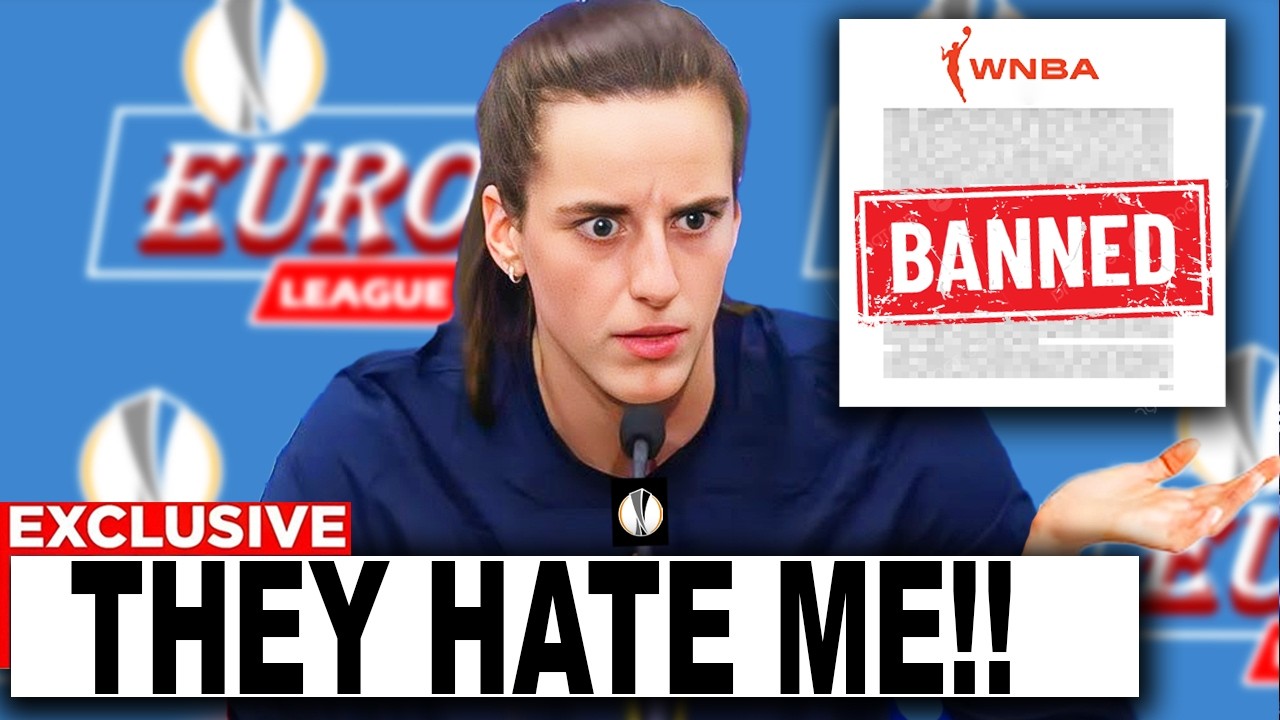
The controversy surrounding Caitlyn Clark’s rumored potential move to the EuroLeague has sent shockwaves through the WNBA and the basketball world. Recent reports suggest that Clark, one of the brightest young stars in women’s basketball, received a lucrative offer to play in Europe, but the WNBA is taking a hard stance, reportedly threatening to ban her if she accepts. Fans and analysts alike are outraged, seeing this as an unfair restriction on Clark’s ability to explore career opportunities that could benefit her both professionally and financially.
Caitlyn Clark is currently under contract with the Indiana Fever for the next four years. Despite her incredible talent and popularity, Clark is earning only around $300,000 over this period, which pales in comparison to the potential earnings in European leagues. Many WNBA players, frustrated with the league’s pay, have already made the move overseas, with notable names like Kelsey Mitchell and NaLyssa Smith heading to China. However, the WNBA seems determined to keep Clark within its ranks, fearing that her departure could cause significant damage to the league’s viewership and overall popularity.
Clark’s star power is undeniable. Since entering the WNBA, she has brought unprecedented attention to women’s basketball, attracting a massive audience who tune in specifically to watch her play. When her team was knocked out of the playoffs, WNBA viewership dropped significantly, showcasing just how much the league relies on her to maintain fan interest. Despite her impact, the WNBA has been criticized for not doing enough to support or protect her.
Earlier in the season, Clark was involved in an on-court incident with another player, DiJonai Carrington, which left Clark with a black eye. The WNBA took no disciplinary action, raising questions about player safety and the league’s priorities. Furthermore, Clark was snubbed for a unanimous Rookie of the Year vote, a decision many believe was driven by bias, further fueling the perception that she is not receiving the recognition she deserves.
At just 22 years old, Clark has a long career ahead of her, and the opportunity to play in Europe presents an exciting possibility. However, the WNBA’s threat of a ban complicates matters, forcing her to choose between staying in a league that has repeatedly failed to support her or pursuing her career aspirations abroad. Fans see this as a clear betrayal of one of the league’s most marketable talents, and it highlights the broader issues the WNBA faces in retaining and properly compensating its top players.
If the WNBA doesn’t change its approach and provide players like Clark with the respect and support they deserve, they risk alienating their stars and, ultimately, their fan base. Clark’s situation is a stark reminder that the league must prioritize its players if it hopes to continue growing and succeeding on the global stage.





